School board president talks about racial equity moves including Princeton Plan, restorative justice
Pelham Board of Education President Jessica DeDomenico said enacting the Princeton Plan as recommended in the district’s report on racial equity “solves a lot of the concerns around race and equity” but won’t happen until “later on down the road” because Pelham values its neighborhood schools.
The report’s proposal that the district adopt the practice of restorative justice in place of punishments is a major project “to tackle and I think it’s definitely one worth considering,” DeDomenico said.
“I think the Princeton Plan solves a lot of the concerns around race and equity,” she said. “But Pelham really values its neighborhood schools and the ability to walk to school and that many families have multiple kids across multiple grade levels, so the Princeton Plan also brings up a lot of concerns from that viewpoint. I think this is something we would look towards later on down the road, but there’s a lot to look towards in terms of correcting some of the wrongs in the community before we get to that kind of change.”
DeDomenico is the first school board member to comment publicly on any of the almost two dozen specific recommendations in the report by the NYU Metropolitan Center for Research on Equity and the Transformation of Schools, the district’s racial-equity consultants. The center’s work is costing approximately $25,000 this school year, with about half being reimbursed by BOCES, said a school district spokesman.
(This is the first of a two-part series on reactions to the report’s specific recommendations. This story features an interview with DeDomenico and a PTA representative. On Monday in part two, Pelham United, Bridges of Pelham and Progressive Women of Pelham discuss the policies laid out in the report.)
Since the report was released five months ago, several other board of education members have made general comments about the report during meetings, including stating they don’t agree with some of the recommendations, without stating specifics.
The Examiner emailed interview requests three times each to Vice President Sue Bratone Childs and trustees John Brice, Vincent Mazzaro, Eileen Miller, Leah Tahbaz and Jessica Young without getting a response.
However, DeDomenico said Thursday the district’s technology director determined that the 18 emails “likely went into the board members’ spam folders because of a filter that was set up to guard against phishing schemes” and then were automatically deleted after 30 days. DeDomenico did receive the interview request, which was sent by a reporter from one of the same two accounts used to contact the other trustees.
Saying the Pelham school district lacked “a consistent commitment to fostering an equitable and racially just school environment,” the Metro Center’s report recommended a review of existing barriers to employment and the creation of “affinity spaces” for minority groups, as well as a more equitable approach to making school resources accessible for students and families. It specifically suggested the district revisit the implementation of the Princeton Plan at the elementary level to better integrate younger students. The Princeton Plan, considered ten years ago, would eliminate the neighborhood elementary school system, instead populating the schools by grade.
The plan is meant to address the difference in racial makeup of Hutchinson School (41% white) and the three other elementary schools (70% to 75% white).
The report also called for removing subjective language from the code of conduct, which is something the district has yet to get to, said DeDomenico.
“We have been looking at our policies through a gender neutral lens, trying to reword some of the policies over the last year to year and a half to be more gender neutral as we speak about students,” though subjective language is “not something that we’ve yet addressed,” said DeDomenico.
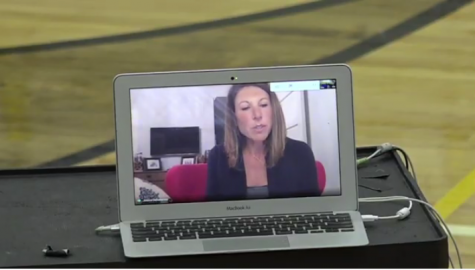
The school board president said that much of the work to create affinity spaces is being done at the middle school and high school: “Affinity spaces are important for groups that do feel marginalized, but I think it’s also connected in an overarching theme and goal in cultural competence goals of the district to increase student voice and agency, such as including student leaders at the table when big decisions are being made and to increase student voice and within marginalized groups.”
The report found that in nearly every year for the past five years, Black and Latinx students have been suspended at higher rates when compared to their representation in the general student body.
“I think the one place that we need to work as a district is do a better job of streamlining the data and the way we collect it so that we can actually see the patterns,” DeDomenico said. “It was hard, I believe, through the audit, and I think that’s why this is one of the recommendations: to actually take the narratives that were shared and actually see it backed up with data.”
As far as the board’s stated commitment to developing a roadmap with the metro center to address the recommendations, DeDomenico said, “We’re still at the very beginning. If you’re looking at the strategic planning action steps, I think that we are doing pretty well.” The road map will be “a combination of looking at our action steps and goals from the strategic plan and considering the audit, and the context of that and what new ideas may have come from the audit to determine what our roadmap continues to look like. I would argue the roadmap began to be paved long before this audit happened.”
The district has made efforts to diversify hiring by posting job listings to different websites to draw a broader pool of applicants. “We are looking for the most qualified candidates but are hoping to have a diverse applicant pool to interview from to ensure we are trying to accomplish both,” DeDomenico said.
Sarah McKee, president of the Colonial School PTA, said the Pelham Council of PTAs agreed “there is work to be done to improve inclusivity and equity in our schools, and we are going to be committing at individual school levels to be working with (Superintendent Dr. Cheryl) Champ and the district and our building administration to implement certain things within our schools that can help advance some of the recommendations.”
The PTA Council put out a statement Feb. 15 committing itself to helping advance the recommendations in the NYU Metro Center’s audit. The statement did not address any of the specific recommendations in the report. It also backed the district’s strategic goal of cultural competence (formerly diversity).
McKee said her PTA is not discussing the Princeton Plan as a way to address Pelham’s geographical segregation. The PTAs are instead focused on bringing together elementary school events, she said.
Currently, a single annual field day is one of the few events that unites fifth graders before they enter middle school.
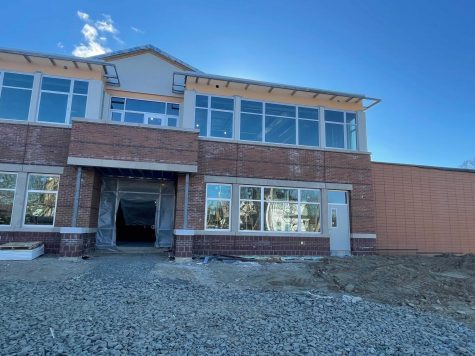
“One of the things that the PTAs at the elementary level have talked about a lot is creating forums for kids from all four schools to come together in advance of when they all meet in person in middle school,” she said. “Outside of recreational sports, there aren’t that many opportunities offered for kids from the different schools to engage in common interests or common activities together. My hope in doing that is that it will start to break down some of those barriers, both real and perceived, and those can be ongoing and sustained efforts that bring our students together at a much earlier time in their educational careers.”
On more diverse hiring, McKee said, “I hope that we are able to interview and see a wide range of qualified candidates. And I think the way that the district has advertised for the job, that I’ve seen, has prioritized that.”
“We are prioritizing looking to bring the concept of listening circles into our town and to have facilitated open dialogue and conversation for people to come and share their stories and just talk with each other in an open and honest and safe environment,” McKee said. “I hope that they are willing to listen to other perspectives but really focus their energy and their primary concern where it should be focused, which is on the students that we serve, and not just their own children, but all children in the district.”
Cristina is a senior at Pelham Memorial High School. She is the class of 2023 secretary and the Editor-in-Chief of the PMHS Pelican Yearbook. Cristina...
Sophia Leung is a freshman at the University of Pennsylvania with an undecided major in the College of Arts and Sciences. In addition to contributing to...



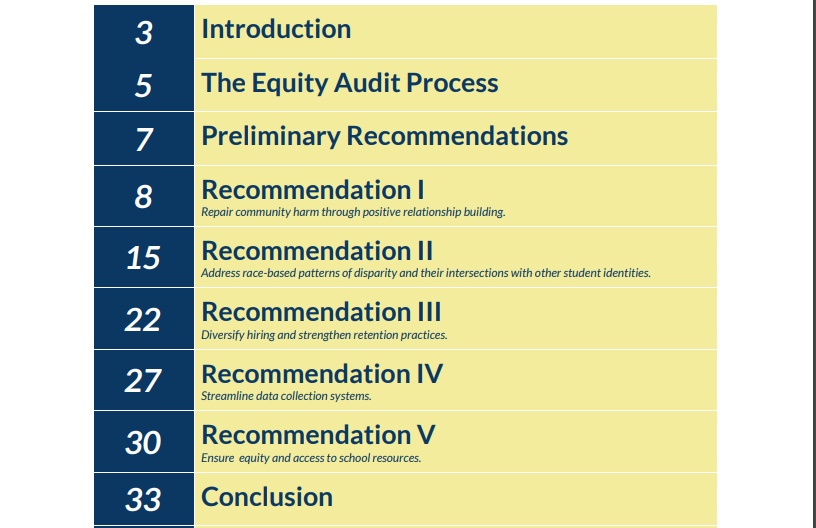
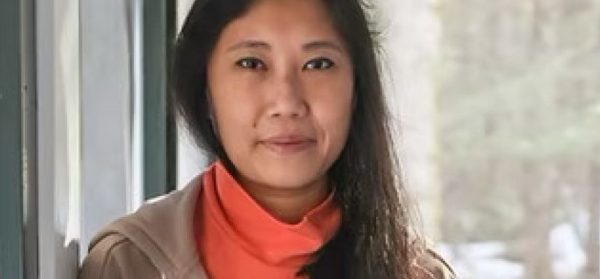

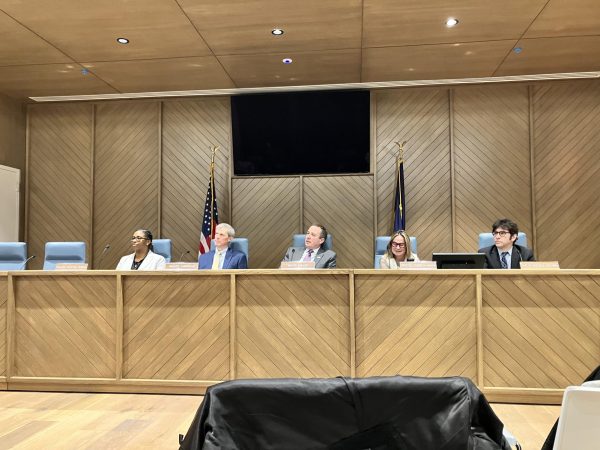
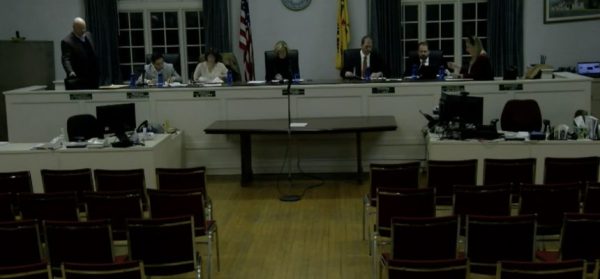
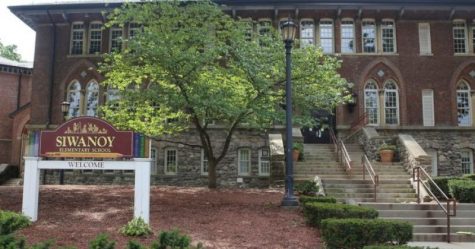
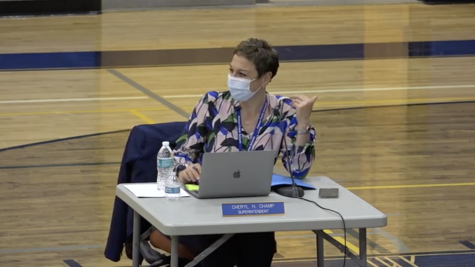

Kathy Soderberg • Mar 19, 2021 at 1:53 pm
I have always found the members of the School Board to be incredibly responsive, so I am glad (and not surprised) to hear this was a mix-up.
Madeline Smith • Mar 18, 2021 at 10:15 pm
As a former school board member, the prior headline certainly caught my attention. Based on my experience and to the best of my knowledge, it has always been school board practice to designate a single spokesperson, usually the president, to speak to the media on behalf of the board. Despite the fact that communications usually flow through the president, knowing these board members I would be surprised if they intentionally “refused” to respond. I am pleased to see that the headline of this article was amended.
Jessica DeDomenico • Mar 18, 2021 at 5:14 pm
The headline and portions of this article concern me for a variety of reasons. The Board has a longstanding practice in which the President speaks on behalf of the Board with regard to media requests and board communications. The intent of this practice is to ensure that the Board is providing accurate and concise information when communicating to the public. The choice of the word “refused” is inaccurate. I was surprised to learn that e-mail correspondences had gone unresponded to, given that our board members are so dedicated and student-driven. After reading the article and reaching out to the board members who checked and told me they hadn’t received these emails, we asked the District’s technology department to look into what might have happened. We are told the emails likely were caught in an email filter designed to prevent phishing schemes. Had anyone reached out to me directly to ask why 18 separate emails had not been responded to, I would have happily reached out to them to see what was going on. Perhaps there has been miscommunication, but it is unfortunate that this was used in the headline and in the story.
It is also unfortunate that the Princeton Plan was the focus of this headline given that the reporter conducted a thorough interview of a number of important issues related to the audit. While I believe there is merit to aspects of the Princeton Plan, it is not something the Board is considering at this time. As I’ve noted in my public remarks and in letters to the community, the Board is committed to the goal of Cultural Competence and is keenly focused on moving this work forward to ensure every student has the tools to succeed and that our District is welcoming for all.